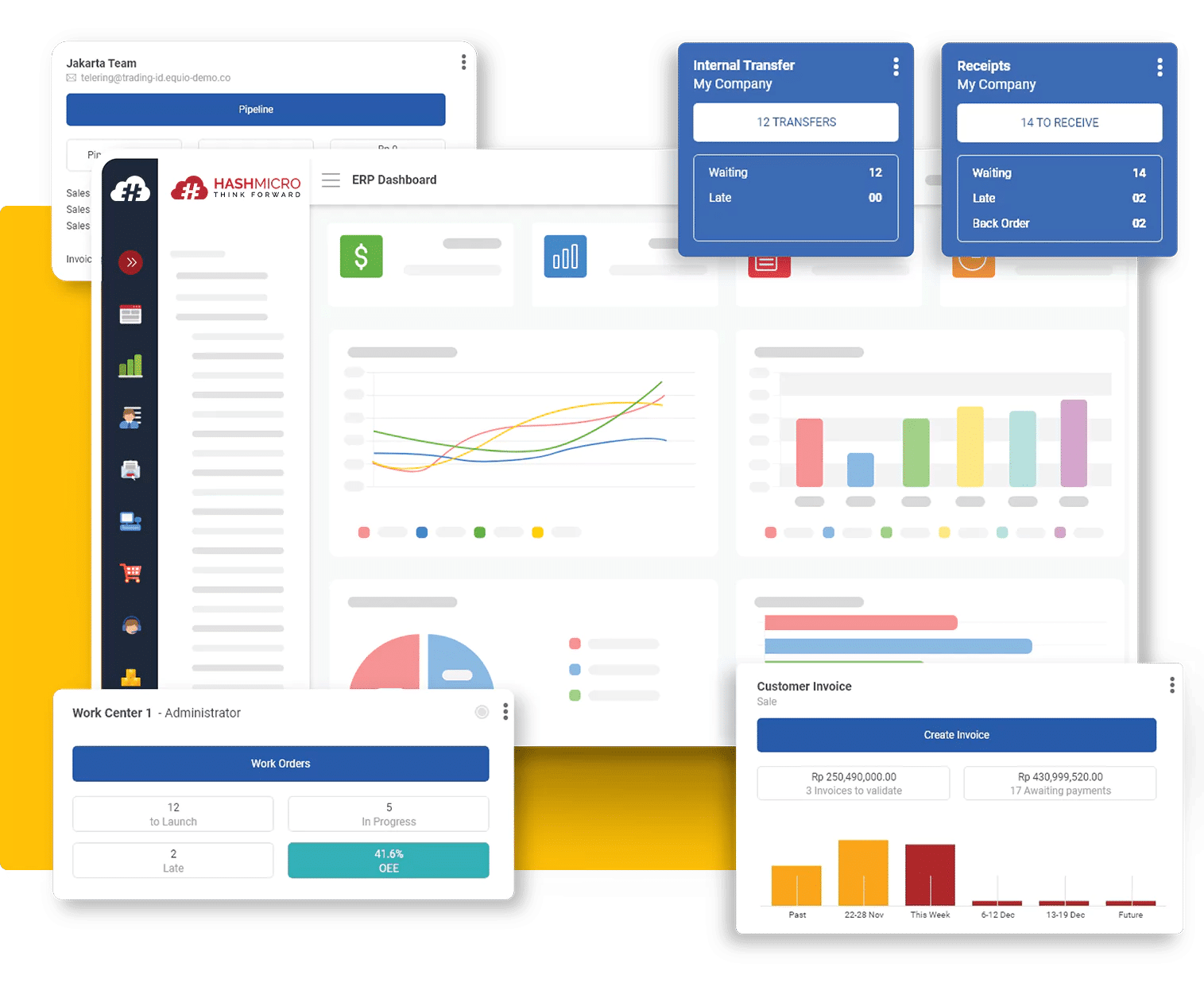In today’s online world, going digital is not just an option, it’s a must for businesses to keep up with the times. However, many companies can switch to digital systems but hesitate to spend the needed money, often because they think it’s too expensive.
Some businesses feel their old ways are still good enough and that the benefits of going digital aren’t worth the costs. Interestingly, this opinion often changes quickly when they face big problems that shake up their usual ways of working, and they see they are falling behind their competitors.
In these urgent situations, companies often scramble to make their processes digital, usually spending more money and effort than if they had planned for digital changes from the start.
This can hold back business growth and become a hurdle in reaching future success, raising the risk of not being able to keep up in a world that’s more and more digital.
So, this article will talk about why digital transformation is essential for the future success and growth of businesses, and how it helps them take advantage of new opportunities.
This article is the first in a series of articles. In the following articles, you can learn about several key business processes that require digital transformation, such as supply chain, manufacturing, and accounting.
Key Takeaways
|
Table of Contents

Understanding the Importance of Digital Transformation in Business
Digital transformation is the process of using digital technology to change how businesses work, add value for customers, and improve performance.
This transformation includes using technologies like ERP (Enterprise Resource Planning) software, cloud computing, artificial intelligence, data analytics, and the Internet of Things (IoT) to boost efficiency and innovation.
Digital transformation is vital for businesses to keep up with changes in consumer behavior that are increasingly dependent on digital technology. By adopting digital transformation, businesses can see many benefits, including:
- Reducing operational costs: By cutting down on manual tasks, improving production efficiency, and using more adaptable business models, companies can lower costs.
- Increasing sales and company margins: Advanced data and analytics from digital systems can pinpoint opportunities, understand customer tastes, and create effective pricing strategies. This can boost sales and profit margins.
- Enhancing efficiency: Digital transformation lets businesses automate their processes and activities, reduce reliance on manual work, and increase overall operational efficiency.
- Improving data access and analytics: Companies can use technology to gather, analyze, and understand data. Reliable analytical data allows businesses to make quick and well-informed decisions.
- Adapting to changes in consumer behavior: Companies can adjust to shifts and offer experiences that align with consumer preferences in using digital technology.
- Enhancing competitiveness in the global market: Companies can analyze market data and consumer behavior, optimize customer experiences, and make faster decisions. This is key to staying relevant, responsive, and competitive in a changing market.
Comparison of Conventional Business and Digitally Transformed Business
Below is a comparison table between businesses still using conventional methods and those that have digitized their operational management.
| Aspect | Conventional Business | Digital Business |
|---|---|---|
| Sales | Hindered by manual sales processes and limited customer data, Year-Over-Year Growth tends to be stable or slightly increase, ranging from 5-10%. | With better analytics and more efficient sales processes, Year-Over-Year Growth can increase to 15-25% or more. |
| Purchasing | The purchasing process takes an average of 1-2 weeks from submission to final approval. | With automation, the process of creating purchase requests, sending RFQs (Request for Quotation), to final approval can be shortened to 1-2 days. |
| Inventory | Buffer stock to anticipate inventory data inaccuracies can reach 10-15%, resulting in higher storage costs. | With real-time data accuracy and predictive analytics, buffer stock can be reduced to 3-5%, lowering storage costs and increasing space efficiency. |
| Finance | Manual Accounts Receivable billing processes require an average of 1 month to reach settlement. | Accounts Receivable billing with systems can reduce the processing time to an average of 20 days. |
| Human Resources | Manual management of time and payroll might take up to 5-7 business days per payroll cycle. | Automation of HR administrative tasks reduces the time to 1-2 days, allowing focus on more strategic tasks such as employee development and retention. |
In understanding the importance of digital transformation in business, it’s key to see how traditional businesses differ from those that have embraced digital transformation.
Traditional businesses usually depend on manual processes, slow and intuition-driven decision-making, and minimal use of technology in their operations. They often stick with old systems that offer limited data analysis and little room for innovation.
In contrast, businesses that have embraced digital transformation integrate modern technology into all areas of their operations. They enjoy better access to real-time data, which leads to quicker and more accurate decision-making.
Moreover, businesses that have undergone digital transformation are usually more adaptable and responsive to market changes. They are better equipped to offer personalized and digitally connected customer experiences.
What Happens If Your Business Refuses Digital Transformation
When a business avoids digital transformation, one critical consequence that is often overlooked is its effect on succession planning, or preparing for future leadership.
Proper succession planning ensures that a business has leaders ready to take charge and steer the company through upcoming challenges, including those in an increasingly digital environment.
Ignoring digital transformation can lead to several significant issues, including:
Falling Behind in Competition
In a time when nearly every sector is going digital, businesses that shy away from digital transformation risk falling behind their more innovative and efficient rivals. They may lose market share to competitors who can offer better and quicker services.
Inability to Respond to Market Changes
Digital transformation helps businesses quickly adapt to market shifts, consumer trends, and new regulations. Without it, businesses may struggle to adjust their strategies effectively and quickly, potentially leading to lost revenue and customers.
Decreased Operational Efficiency
Digital technology facilitates the automation of business processes and boosts operational efficiency. Businesses that avoid digital changes might face higher operational costs and reduced productivity because they still rely on manual processes, which are error-prone.
Limited Access to Data and Insights
In today’s business world, data is incredibly valuable. Digital transformation allows companies to collect, analyze, and leverage data more effectively to make informed decisions.
Businesses that do not embrace digital transformation might not have enough data access or the ability to analyze it usefully, which can block their capacity to innovate and stay competitive.
Loss of Long-Term Competitive Edge
As technology continues to advance, businesses that do not engage in digital transformation might find it hard to stay relevant over the long haul. They may lose their competitive edge as they fail to keep up with new technological advances and market trends.
Overall, resisting digital transformation can severely affect a business’s performance and long-term viability. Therefore, it is vital for businesses to embrace change and integrate digital technology into their strategic planning.
Trends and Future of Digital Transformation
Digital transformation is rapidly evolving with new technologies. Here are some key technology trends likely to shape the future of digital transformation and what they mean for businesses:
- Enterprise Resource Planning (ERP): ERP systems will go beyond just integrating internal business processes. They will also extend their functionalities to include broader connections with external digital ecosystems like suppliers, partners, and cloud service platforms.
- Cloud and Edge Computing: Cloud computing is already essential for digital transformation. The rise of edge computing allows data to be processed closer to where it’s generated, reducing delays and speeding up processing.
- Artificial Intelligence and Machine Learning: AI and machine learning are increasingly used in various business aspects, supporting automated processes, smarter decision-making, and more personalized experiences.
- Cybersecurity: With more businesses going digital, cybersecurity risks are on the rise. Future cybersecurity measures will need to be more robust, using technologies like AI to detect potential threats early.
- Internet of Things (IoT): IoT connects more devices, allowing them to communicate and generate data. This data can optimize operations, enhance customer experiences, and help develop new products and services.
Digital transformation is set to deepen and expand, influencing almost every aspect of business. Companies that quickly adopt and adapt to new technologies will likely outpace competitors.
For businesses, this means there’s a continuous need to invest in new technologies, develop employee skills, and adjust business strategies to make the most of these technologies.
Moreover, improved collaboration between humans and machines, along with shifts in organizational structures and company cultures, will be crucial to foster rapid innovation and adaptability.
Strategies for Overcoming Business Challenges with Digital Systems
Addressing business challenges with digital systems introduces solutions to common issues faced by businesses, such as inefficient inventory management, difficulties in accurately tracking financial data, lack of coordination between departments, and challenges in delivering good customer service.
By adopting digital transformation and utilizing digital systems like Enterprise Resource Planning (ERP) software, businesses can effectively overcome these challenges.
ERP software, such as that offered by HashMicro, aids businesses in automating processes, integrating data across departments, enhancing visibility into business operations, and improving customer experiences.
With comprehensive features and high scalability, HashMicro software can assist businesses in growing and competing in an increasingly competitive market, without sacrificing efficiency and service quality.
If you are interested in digitizing your business with HashMicro’s ERP software and maximizing business performance, you can learn about the pricing scheme by clicking the image below.
To discover the best solution for your business, explore the HashMicro ERP software. Check out our pricing plans below and find the package that perfectly suits your needs.

Case Study: Benefits of Implementing Digital Transformation in Business Processes
Digital transformation is crucial for building business resilience and enhancing operational efficiency. With technological aid, businesses can innovate, adapt, and respond to market changes swiftly and effectively.
In this section, we’ll see how digital transformation has enabled companies to navigate challenges and achieve significant success across various sectors.
McDonald’s
McDonald’s, one of the largest fast-food chains globally, was founded in 1940 by Richard and Maurice McDonald in California. The company has grown rapidly and now operates in over 100 countries, including Indonesia.
Originally, McDonald’s used a traditional ordering system where customers would order and pay directly at the cashier. This often led to long queues, impacting customer satisfaction and operational efficiency.
The presence of long queues could deter potential customers, who might choose to leave and seek quicker, more convenient dining options elsewhere.
To address this, McDonald’s initiated its digital transformation by implementing a POS Kiosk, or self-order system. This system allows customers to place orders and make payments through a digital kiosk, bypassing the cashier queue.
This innovation significantly reduced waiting times for customers and increased service efficiency during peak hours, leading to enhanced customer satisfaction and increased sales.
Today, the role of technology in business has transitioned from optional to essential. The success stories of companies like McDonald’s highlight the transformative impact of digital solutions on business models and the substantial value they add to enterprises.
Conclusion
Digital transformation is essential for adapting to the fast changes in today’s business landscape. It’s no longer just an option but a necessity for companies that want to stay relevant and competitive.
If you’re still unsure about the need for digital transformation, think about the long-term profitability and sustainability that technological adaptation can offer. Gaining a deeper understanding of what digital transformation entails and its benefits can significantly improve your business’s efficiency.
As a business leader, now is the perfect time to initiate or enhance your digital transformation efforts. Assess the direction your business is heading and how technology can facilitate this journey.
A practical first step could be partnering with HashMicro for your digital transformation. HashMicro provides advanced ERP software that automates your business processes and boosts efficiency.
Don’t miss out on the chance to elevate your business performance with the support of cutting-edge technology. Consider trying a free demo today!














































